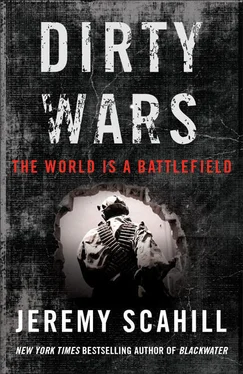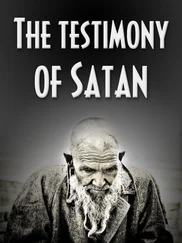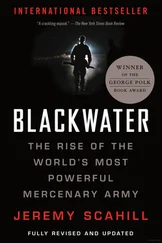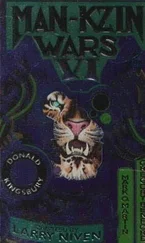Anwar admitted that when he first went to the United States for college, he “was not [a] fully practicing” Muslim, but after the Gulf War began he started to become politicized and eventually headed up the Muslim Student Association on campus. Anwar had also become interested in the war in Afghanistan and, during winter break in 1992, Anwar traveled to the country. The US-backed mujahedeen had expelled the Soviet occupiers in 1989, yet Afghanistan remained embroiled in civil war and the country was a popular destination for young Muslims, including a staggering number of Yemenis, to explore a front of jihad. “The invasion of Kuwait took place, followed by the Gulf War. That is when I started taking my religion more seriously,” Anwar later recalled. “I took the step of traveling to Afghanistan to fight. I spent a winter there and returned with the intention of finishing up in the US and leaving to Afghanistan for good. My plan was to travel back in summer; however, Kabul was opened by the mujahedeen and I saw that the war was over and ended up staying in the US.”
Anwar’s grades started slipping at the university as he became more invested in politics and religion. He later claimed that he lost his scholarship because of his activism. “Word came to me from a connection at the US Embassy in Sana’a, that they have been receiving reports about my Islamic activities on campus and the fact that I have traveled to Afghanistan and this was the single reason for the termination of my scholarship,” he alleged. In retrospect, this appears to have been a defining moment in Anwar’s trajectory. A spark had been created that, when combined with the events that followed it, altered his path. Years later, Anwar theorized that the scholarship he was given was part of a US government plot to recruit students from around the world as agents for America. “The US government through its programs of scholarships for foreign students has created for itself a pool of cadres around the world. From among these are leaders in every field, heads of state, politicians, businessmen, scientists, etc. They have one thing in common: They were all students in American Universities,” he wrote. “These programs have helped the US bolster its strength worldwide and spread out its control. The way the US is managing an empire without calling it an empire is one of the great innovations of our time.” The story he told about himself was one of a rare individual who had resisted this imperial design. “The plans to have me as one of the many thousand men and women around the world who have their loyalty to the US did not go through. I wasn’t suitable for that role anymore. I was a fundamentalist now!”
The members of the Awlaki family did not consider themselves particularly religious, just good Muslims who prayed five times a day and tried to live their lives in accordance with the Koran. Religion was not unimportant by any means, but for the Awlakis, their tribal identity came first. They were also modern people with relationships with international diplomats and businessmen. As he was becoming politicized, Anwar attended a mosque near his university in Colorado and the local imam asked him to deliver a sermon one Friday. Anwar agreed and realized he had a gift for public speaking. He began to think that maybe preaching, not engineering, was his true calling. “He was a very, very, very promising person. And we were hoping for a good future for him,” recalled Anwar’s uncle, Sheikh Saleh bin Fareed, a wealthy businessman and the head of the Aulaq tribe in Yemen. “I think Anwar was born to be a leader. It was in his blood, and his mentality.”
Anwar graduated from CSU in 1994 and decided to stay in Colorado after graduation. He married a cousin from Yemen and took a job as an imam at the Denver Islamic Society. Nasser told me that Anwar never spoke of becoming an imam when he left for America but that he fell into it after being asked to preach a few times. “He thought this is an area where he can be [of help] and can do something. So I guess it started just by coincidence. But then I guess he liked it, so he decided to shift from professional engineering” to a vocation preaching Islam. Anwar became interested in the writings and speeches of Malcolm X and concerned about the plight of the African American community. In Denver, “He started to think about social issues in America, and he knew many black people and he went to see them in prisons, tried to help them,” said Nasser. “So he became more involved in the social problems in the United States, regarding Muslims, and other minorities.” A member of his mosque in Denver later said of Awlaki, “He could talk to people directly—looking them in the eye. He had this magic.” An elder from Awlaki’s Denver mosque later told the New York Times that he’d had a dispute with Awlaki after the young imam advised a young Saudi worshipper to join the Chechen jihad against Russia. “He had a beautiful tongue,” the elder said. “But I told him: Don’t talk to my people about jihad.”
On September 13, 1995, Anwar’s wife gave birth to their first child, a boy named Abdulrahman. A year later, in 1996, Anwar moved his young family to San Diego, California, where he became an imam at the Masjid al Ribat al Islami. He also began working on a master’s degree in education leadership at San Diego State University. In the late 1990s, as the United States was gearing up for the 2000 presidential election, Nasser traveled to the United States to receive medical treatment and visited his son in San Diego. Nasser showed me a photo of a full-bearded Anwar on a boat, holding up a massive fish he caught. “He was already an imam with a big beard, you know,” Nasser recalled, smiling at the picture of his son, who wore a yellow T-shirt emblazoned with the logo of a local Islamic organization and a baseball cap. A former San Diego neighbor of Awlaki’s, Lincoln Higgie III, described Awlaki as “very outgoing and cheerful,” with a “very retiring wife” and an “adorable” child. “He liked to go albacore fishing,” Higgie recalled, “so every once in a while he would bring me some albacore fillets that his wife cooked up.”
While visiting his son, Nasser attended Friday prayers and watched Anwar preach. “It was regular mosque. It had a capacity of about four hundred people, and most of the people who came to the mosque were regular Muslims: engineers, doctors, and people who had restaurants and things like that. From all over the Muslim world, from the Arab world,” Nasser remembered. “I used to listen to his sermons. In fact, at that time, he was asking Muslims to participate in the democratic process in America, and he was encouraging—in fact, during the 2000 presidential campaign of George W. Bush, he thought the conservative Republicans would be better than the liberal Democrats, and he encouraged the Muslims there to elect George Bush. Because, he said, he was against abortions and things like that. These things conform to Muslim tradition,” Nasser recalled. “So he was very active with the Muslim community, actually, and he never supported any violent things. He was very peaceful in America. All he did, really, was to represent Islam in its best.”
In 1999, Anwar had his first run-in with the FBI, when he was flagged by the Bureau because of his alleged contact with Ziyad Khaleel, an al Qaeda associate who US intelligence believed had bought a battery for bin Laden’s satellite phone. He had also been visited by a colleague of Omar Abdel Rahman, the “blind sheikh” convicted of masterminding the 1993 World Trade Center bombing. The 1999 investigation reportedly uncovered other ties the FBI found troubling, such as to the Holy Land Foundation, a Muslim charity vilified for raising funds for Palestinian charitable institutions linked to Hamas, a US State Department–designated terrorist organization. For two years while in San Diego, according to tax records procured by the FBI, Awlaki was the vice president of another organization, the Charitable Society for Social Welfare (CSSW). According to an FBI agent, this was merely another “front organization to funnel money to terrorists.” Though no charges were ever brought against CSSW, federal prosecutors described it as a subsidiary of a larger organization founded by Abdul Majeed al Zindani, a well-known Yemeni with alleged al Qaeda ties. However, by this logic, the US Department of Labor would also be guilty by association, for providing CSSW projects with millions of dollars between 2004 and 2008. Anwar’s family dismisses the suggestion that Anwar was raising money for terrorist groups and insists he was raising money for orphans in Yemen and elsewhere in the Arab world. The US investigation into Anwar was soon closed, for lack of evidence. In March 2000, the FBI concluded that Awlaki “does not meet the criterion for [further] investigation.” But it wasn’t the last time Anwar would hear from the FBI.
Читать дальше












